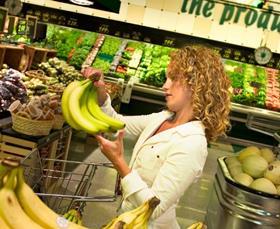
Following a report last week from Ecovia highlighting the growing threat of food fraud worldwide, a separate study from NFU Mutual in the UK has outlined the fact that consumers seem to lay the blame for the phenomenon at the hands of producers and retailers.
The report, created in conjunction with The British Retail Consortium, Food and Drink Federation and other industry partners, looked into consumer perceptions of the UK food industry and how high profile cases of food fraud have affected confidence.
It revealed that a fifth of people (20 per cent) are most likely to blame the retailer for cases of food fraud, while 63 per cent would blame producers, 9 per cent would blame distributors and 6 per cent would blame farmers.
The survey of over 2,000 consumers found that only 12 per cent of people have confidence in the European food chain and just 7 per cent in the global chain.
One third of consumers (33 per cent) are less trusting of products and retailers than they were five years ago, compared with only 9 per cent whose trust has increased. A further 33 per cent believe that food crime is likely to increase in the future.
The research found that over two thirds of people (70 per cent) regularly take measures to ensure their food is legitimate and 17 per cent avoid certain foods altogether that they believe could be susceptible to fraud. Almost four out of five respondents though (77 per cent) said that they would not know how to spot a counterfeit product.
Almost three quarters of people (72 per cent) believe there to be an issue with food fraud in the UK, with over a quarter also believing that they have personally experienced it (27 per cent).
“There has never been a more important time for tackling food fraud and getting regulation right as we plan to leave the European Union, but Government proposals for where we will get our food from are already under tough scrutiny from industry and consumers alike with concerns over quality,' said Frank Woods, retail sector specialist at NFU Mutual.
“Retailers could be impacted as producers are under immense pressure to offset price rises caused by the weakened value of sterling and higher import costs, squeezing already tight budgets and resources and potentially cornering them into using cheaper global suppliers that may be more vulnerable to fraud,' he continued. 'The UK food and drink industry could be losing up to £12bn annually to fraud, entering the food chain through means including falsified or inaccurate documentation, and redirection of waste products back into the supply chain or re-dating of stock.'
“Our research exposes the damaging effect that various influencers have had on consumer confidence over time, and the responsibility many people place on retailers to thoroughly assess the produce they sell,' Woods added. 'Much of the industry is addressing this by adapting its supply strategy and supporting British producers - popular with consumers who want to support local businesses on home soil. How British retailers will be supported and enabled to deliver the quantity of food required and improve consumer confidence remains to be seen.'



